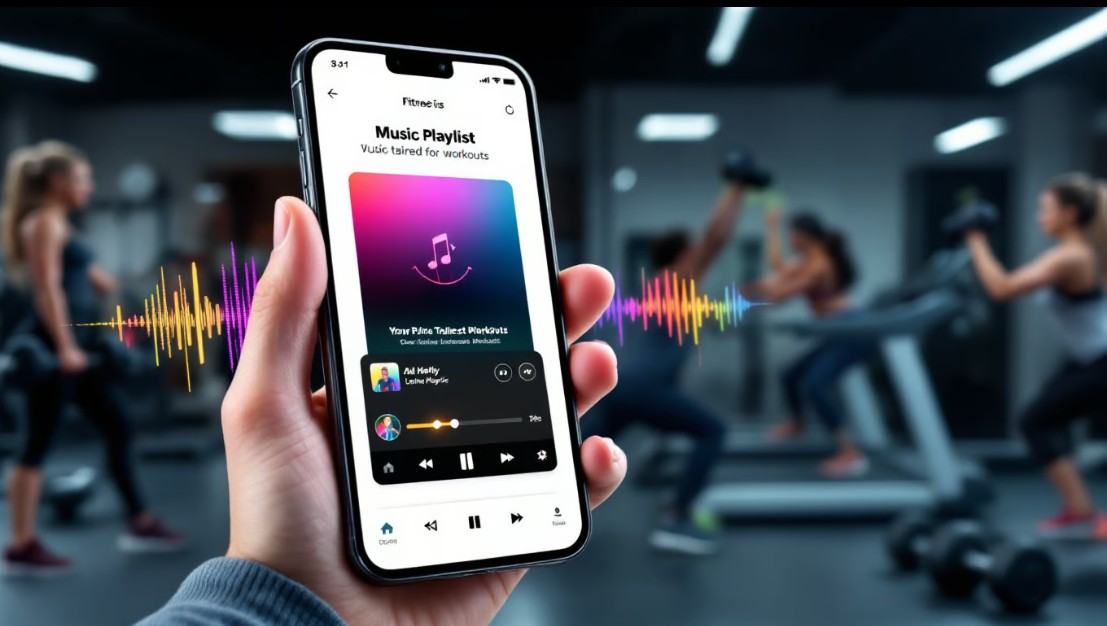
Ever notice how the right song can push you through a tough workout? Music has always been a powerful motivator, but now, with advances in AI, fitness apps are taking things to the next level.
Instead of relying on pre-made playlists, apps are starting to create custom music tracks tailored to your pace, mood, and workout goals—instantly and intelligently.
Thanks to tools like a free AI music maker, even small app developers can integrate dynamic, energizing soundtracks into their fitness experiences. But how exactly does AI-generated music work in fitness apps, and why does it matter for your motivation? Let’s dive into this exciting intersection of technology and wellness.
The Science Behind Music and Workout Performance
Before we get into AI, it’s important to understand why music is such a critical element in fitness. Research consistently shows that music can:
- Increase endurance
- Enhance mood
- Decrease perceived effort
- Synchronize movement (especially during rhythmic activities like running or cycling)
According to a 2020 study published in Psychology of Sport and Exercise, participants who listened to music during exercise outperformed those who didn’t—showing increased power output and reduced fatigue. When tempo and rhythm match the pace of a workout, it can almost feel like your body “locks in” with the beat, making strenuous activities feel easier.
This scientific backing explains why music has always been a crucial feature in fitness experiences—and why personalizing it with AI makes so much sense.
How AI is Revolutionizing Music in Fitness Apps
Traditional fitness apps often rely on user-curated playlists or static music selections. While helpful, these options aren’t always perfectly aligned with real-time changes in your workout intensity or emotional state.
AI-generated music solves that problem. Here’s how:
- Real-Time Adaptation: AI algorithms can adjust the tempo, mood, and intensity of music based on your heart rate, pace, or workout type.
- Personalization: AI can craft soundtracks that match your personal music tastes while optimizing for workout performance.
- Dynamic Composition: Instead of looping pre-recorded songs, AI creates endless, evolving tracks that prevent listener fatigue.
Apps like Endel and Aaptiv are already experimenting with this, offering music experiences that adapt dynamically to each session. Meanwhile, emerging developers are finding it easier to add these capabilities by integrating [free AI music maker] tools into their platforms.
Benefits of AI Music Integration for Fitness Enthusiasts
1. Enhanced Motivation
When music matches your workout in real-time, it can push you to work harder without even realizing it. Fast tempos for sprints, soothing beats for cooldowns—everything perfectly in sync.
2. Reduced Workout Boredom
Static playlists can get repetitive fast. AI-generated tracks keep evolving, ensuring that every workout feels fresh and exciting.
3. Personal Connection
Because AI can learn your musical preferences and workout habits, it crafts a soundtrack that feels uniquely “you,” making fitness experiences more enjoyable and sticky.
Actionable Tips: How Fitness Apps (and Users) Can Leverage AI Music
If you’re a fitness app developer or an avid app user, here’s how to maximize the benefits of AI music:
For Developers:
- Integrate API Solutions: Many platforms offer APIs for AI music generation. Look into services like Endel’s SDK or explore open-source AI music tools.
- Use Biometric Data Smartly: Pair music adaptation with heart rate monitors, fitness trackers, or device sensors to customize experiences.
- Offer Customization Options: Let users fine-tune genres, tempos, or “energy levels” for a more personal connection.
For Users:
- Explore Apps with AI Music Features: Try apps that already offer AI-generated soundtracks for workouts, such as Endel, Aaptiv, or even experimental features in Peloton.
- Give Feedback to AI: Many systems learn better with user feedback. Thumbs up or down on tracks help AI fine-tune future compositions.
- Pair with Wearable Tech: Use smartwatches or heart rate monitors to help apps create even more tailored music experiences.
Challenges and Considerations
Of course, AI music in fitness isn’t without its challenges. Generating high-quality, emotionally resonant music that doesn’t feel robotic remains tricky. There’s also the question of licensing rights for AI-created content if developers use snippets of copyrighted material for training datasets.
Moreover, while personalization is great, not everyone will prefer algorithmically generated music over their favorite artist’s hit songs. Therefore, offering hybrid options—combining AI tracks with traditional playlists—may provide the best user experience.
Final Thoughts: Is AI Music the Future of Fitness?
AI-generated music is more than just a futuristic novelty—it’s becoming an essential part of personalized, motivating workout experiences. With fitness apps embracing AI to create adaptive soundscapes, users can look forward to workouts that not only match their physical output but also enhance their emotional and mental states.
Whether you’re sprinting, stretching, or simply seeking motivation to get moving, the perfect AI-crafted beat could be just a tap away. And thanks to accessible options like a [free AI music maker], this technology is no longer limited to big players—it’s ready for everyone.
In the future, your best workout partner might not be a coach or a playlist—it could be an AI musician tuned perfectly to your rhythm.
